This easy vegan olive oil cake is perfectly moist and tender with the most delicious sweet and slightly savoury flavour.
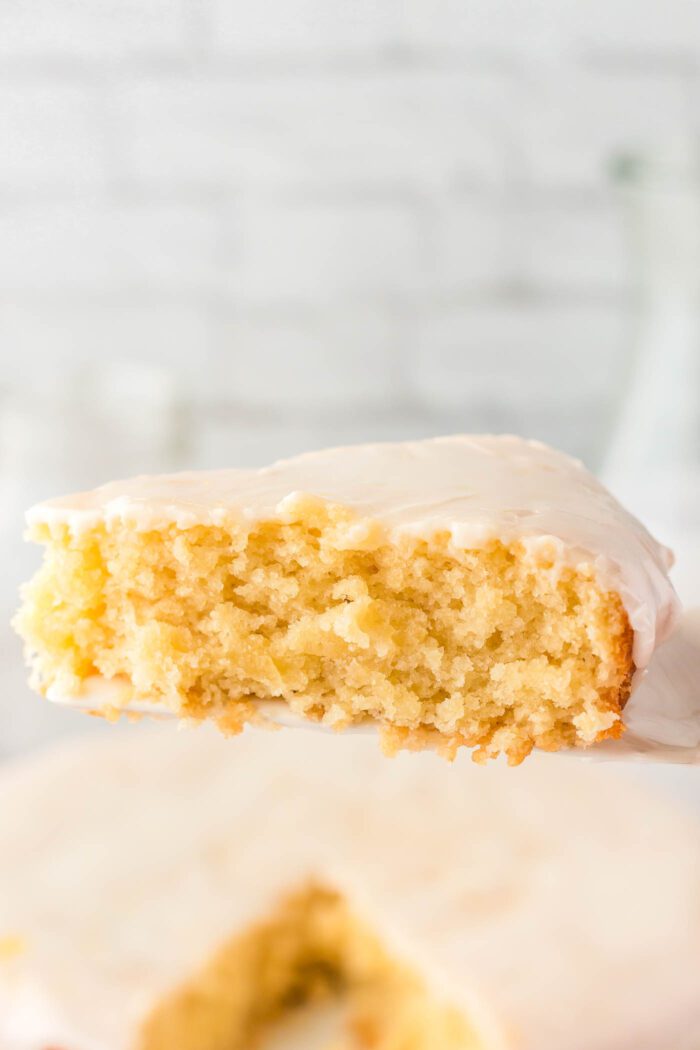
About this Cake
This beautiful olive oil cake has a light, delicate crumb, golden crust, and sweet and savoury flavour. The olive oil gives the cake a slightly savoury, fruity and herbal flavour.
This cake works for breakfast, brunch or a snack and goes great with coffee or tea. Though it makes a lovely everyday dessert, it’s also perfect for holidays like Christmas, Easter and Mother’s Day or any other special occasion.
You’ll love how easy it is to make too! You’ll need just 1 bowl and less than an hour to prepare it. Serve this beautiful cake at your next get-together and it’s sure to be a huge hit!
Quick Highlights
- Perfectly moist and tender while still being light and fluffy.
- Interesting sweet and lightly herbed flavour.
- Stays nice and moist after storing.
- Vegan (dairy-free and eggless).
- Easy to make with simple steps and everyday ingredients.
- Prepare the batter in one bowl.
- Ready to enjoy in less than an hour.
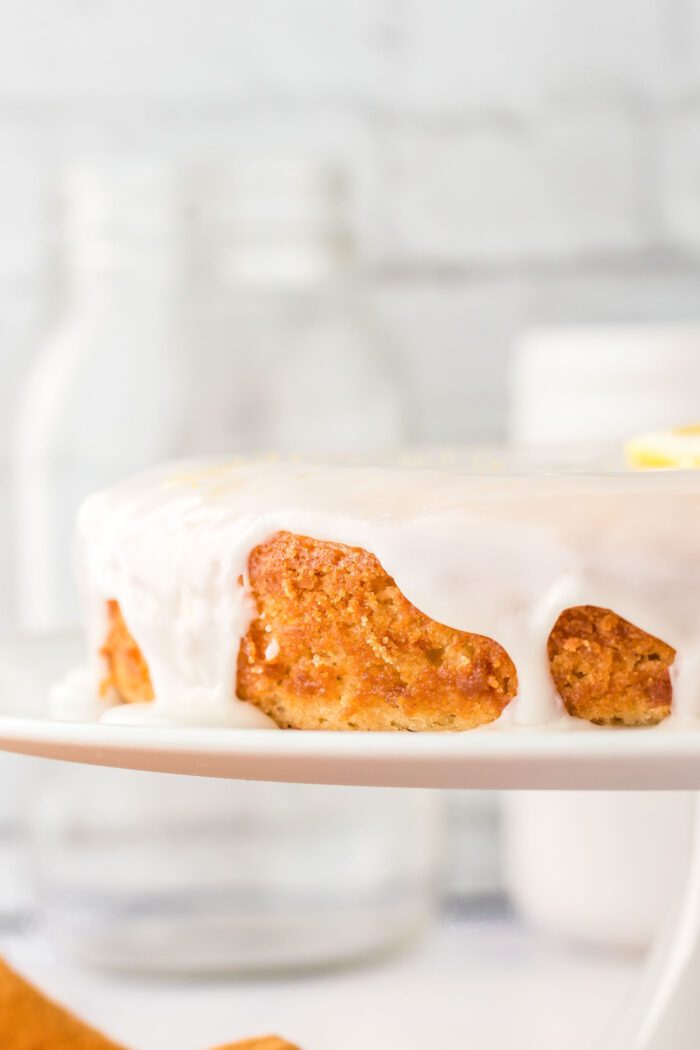
What is olive oil cake?
Olive oil cake is a rich, moist cake that uses olive oil for the fat in the recipe. Extra virgin olive oil adds a unique savoury, herbed and slightly peppery flavour to the cake.
The cake is a typical dessert in the Mediterranean area but its exact origins are unknown. Olive oil cakes can be found in Arab, Italian, Spanish and Jewish cuisine.
Because olive oil is liquid at room temperature, olive oil cake tends to maintain its moistness even after it’s stored for a few days.
Ingredient Notes
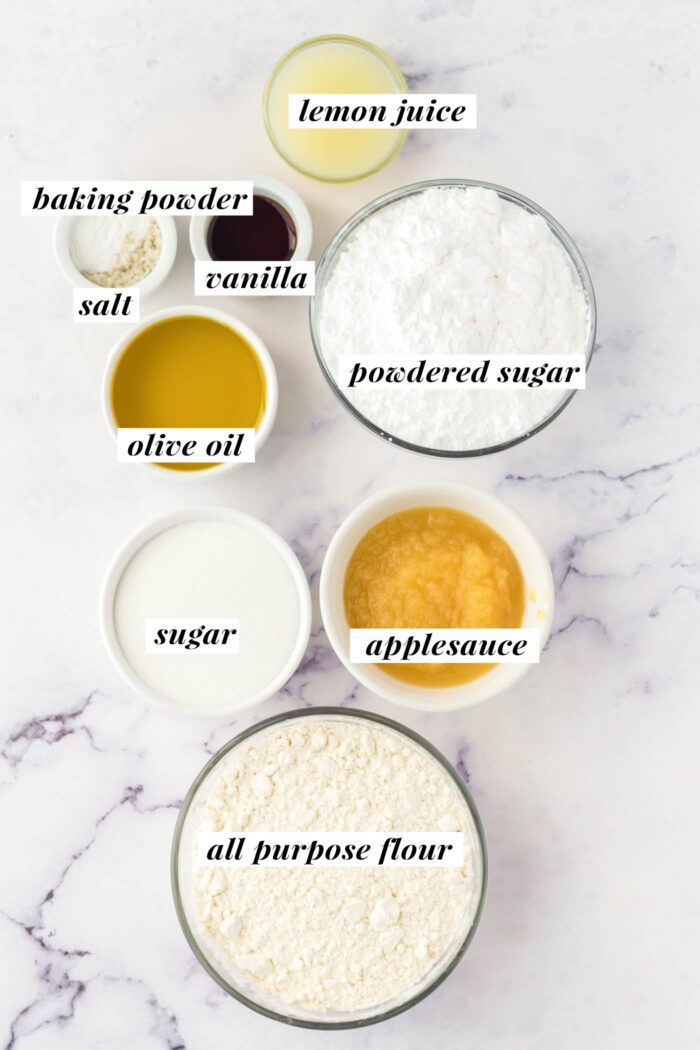
A quick overview of the ingredients used in this recipe and any substitutions that can be made. For the full list of ingredients with amounts, scroll to the recipe card at the bottom.
- Flour: The recipe calls for all-purpose flour and has not been tested with other flour.
- Sugar: You can use cane sugar, organic sugar or table sugar.
- Applesauce: The recipe calls for unsweetened applesauce. Since there’s already 3/4 cup sugar in the recipe, I would recommend sticking to unsweetened applesauce. That being said, you can use sweetened applesauce, just note that the cake will be higher in sugar and come out sweeter. Homemade applesauce is suitable as long as it’s smooth.
- Olive Oil: Use a good quality, extra virgin olive oil. The better tasting/better quality olive oil used, the better the flavour of the baked cake.
- Vanilla: Use pure vanilla extract if you can, otherwise artificial vanilla is ok.
- Baking Powder: Note it’s baking powder, not baking soda.
- Salt: A good quality sea salt or coarse sea salt is best here (rather than table salt).
- Powdered Sugar: If you’re making the glaze, you’ll need powdered sugar (icing sugar).
- Lemon: The glaze calls for lemon juice. You can also use a bit of lemon zest in the glaze and/or the cake if you like. Orange juice and orange zest would be a suitable substitute.
Step-by-Step Method (with photos)
The full directions are found at the bottom of the page in the recipe card. This is a brief overview with some reference photos for how to make this cake.
Prepare: Before you start, preheat the oven to 350 F and line a 9-inch cake pan or springform pan with parchment paper.
Step 1: Cream Oil & Sugar
Add the olive oil and sugar to a large bowl and cream with a hand mixer until fully combined and a little fluffy. This step helps make the cake delicate and fluffy.
If you don’t have a hand mixing you can use an electric mixer or vigorously mix with a fork or metal whisk.
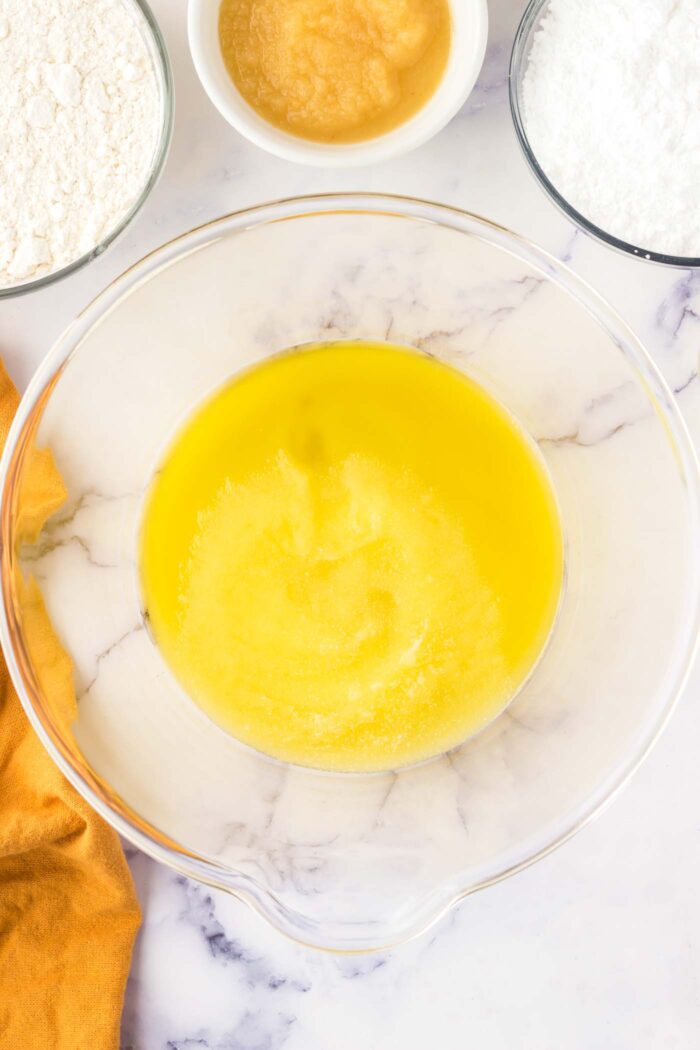
Step 2: Add Other Wet Ingredients
Once you’ve creamed the sugar and oil, add the applesauce and vanilla and whisk to mix them in.
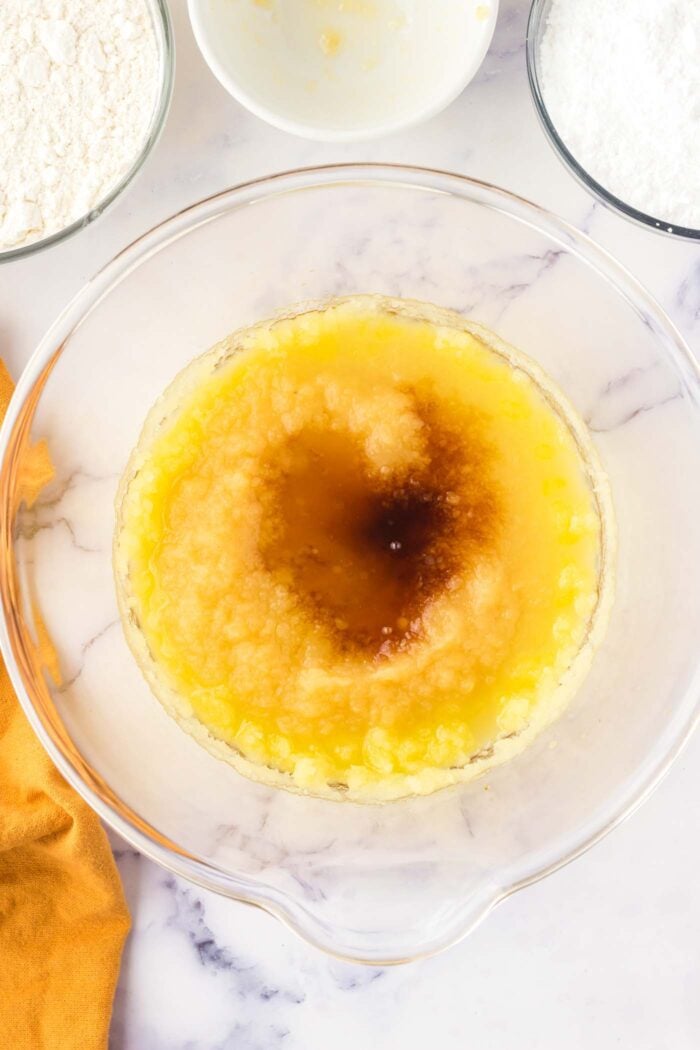
Step 3: Add Dry Ingredients
Add the flour, salt and baking powder and gently fold everything together until there are no dry clumps remaining. Once the flour has been incorporated, stop mixing to avoid overmixing the batter.
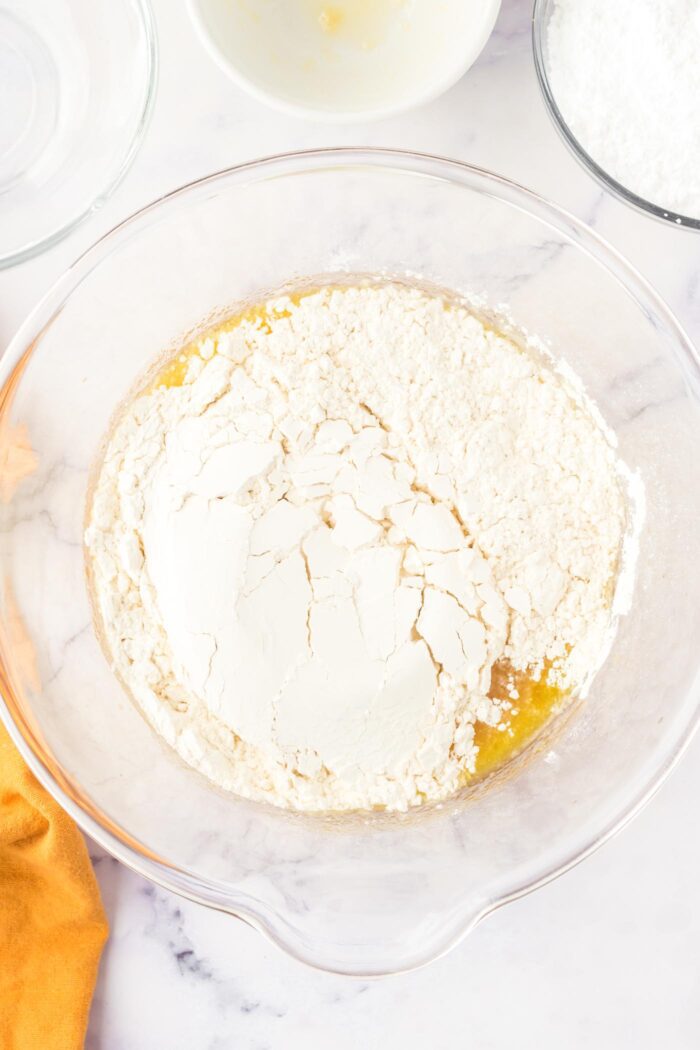
Step 4: Bake the Cake
Add the cake batter to the prepared pan.
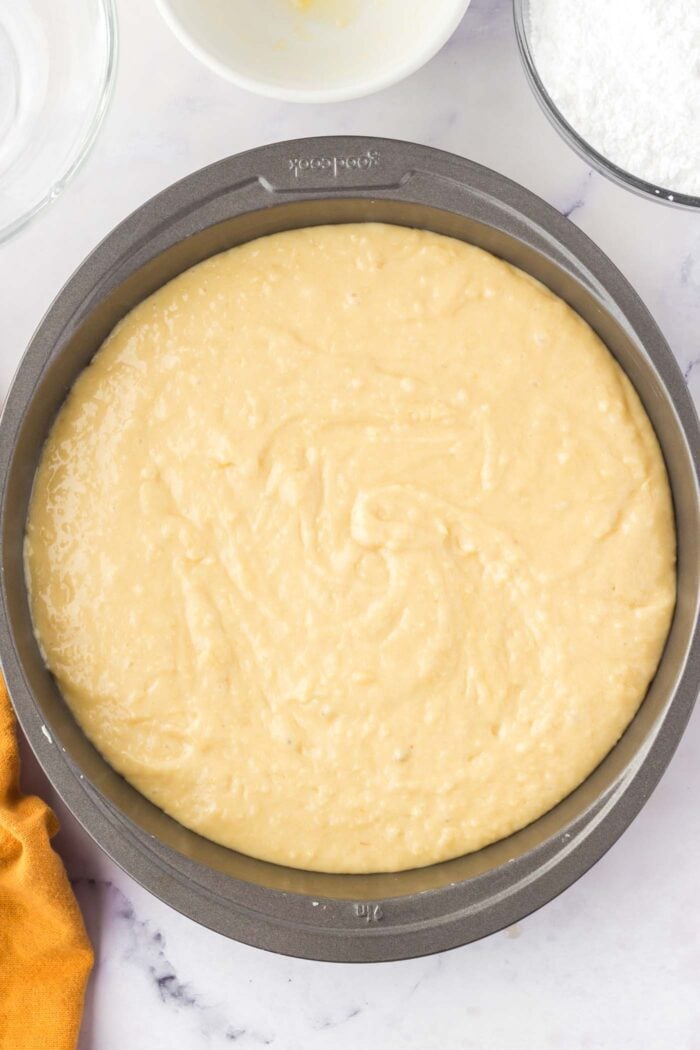
Bake the cake for 35 minutes or until a toothpick comes out clean if inserted in the center of the cake. If the toothpick has wet batter on it, bake the cake for a few more minutes and test it again.
Let the cake cool in the pan for 10-15 minutes then carefully invert it onto your hand or a wire rack and remove the parchment paper. Flip the cake back over and place it on a serving platter or cake stand.
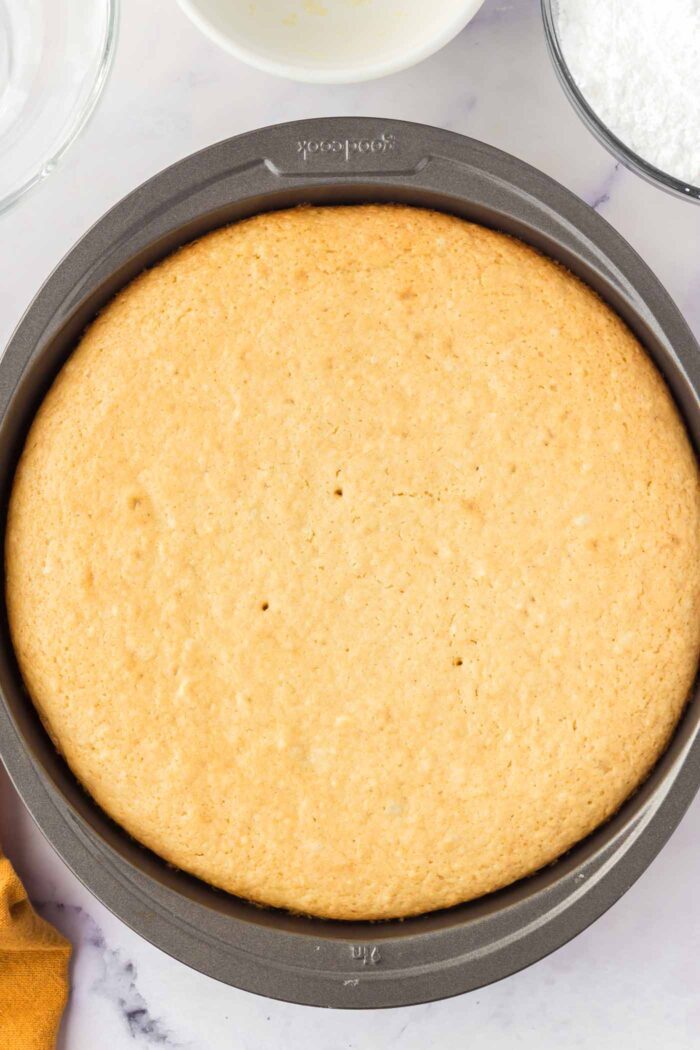
Step 5: Prepare the Glaze
The lemon glaze is optional but if you’d like to make it, whisk together the powdered sugar and lemon juice until smooth. For a more lemony flavour, you can add up to 1 tbsp lemon zest as well.
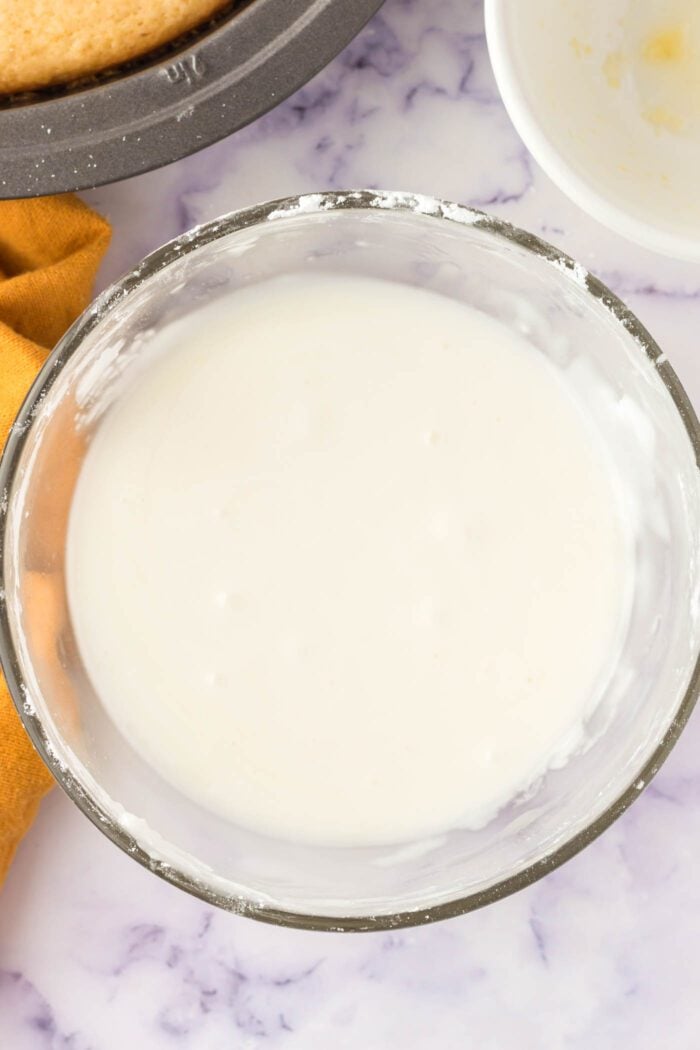
Step 6: Ice the Cake
Spoon the glaze over the cake, rotating the cake from side to side to help spread the glaze around, if needed.
If you’re not doing the glaze, consider using a fine mesh sieve to dust the cake with powdered sugar. Otherwise, the cake is really nice served plain too!
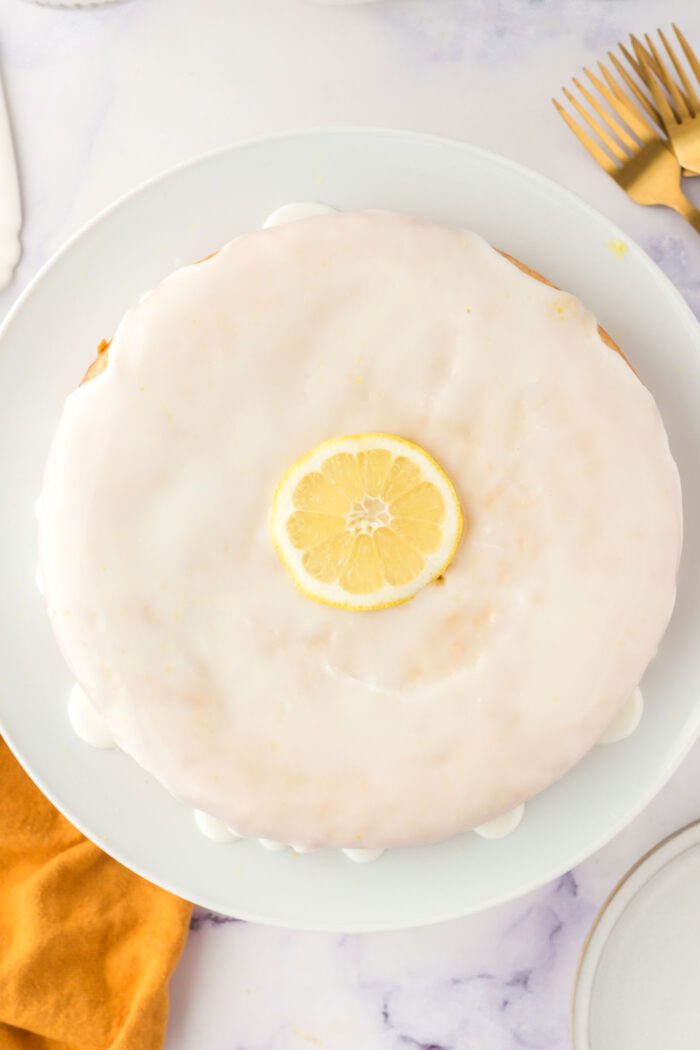
Expert Tips
- Use room temperature ingredients. If you have time, letting the ingredients come to room temperature helps with mixing.
- Use a Scale. Use a kitchen scale to measure ingredients for accuracy. This is the best way to ensure success when baking! Plus, you don’t need measuring cups this way, just measure your ingredients directly into the mixing bowl.
- Avoid overmixing the batter. As with any recipe that uses gluten, overmixing the batter can make the cake heavy, dense and gummy. As soon as the wet and dry ingredients are incorporated, stop mixing.
- Avoid opening the oven door. Allowing the heat to escape and a temperature change during baking can cause the cake to fall.
- Line the pan. Use parchment paper to line the pan to avoid sticking. Rub the pan with oil or lightly spritz with non-stick cooking spray before adding the parchment to help it stick to the pan.
- Zest: If you’re adding lemon zest or orange zest to the cake or glaze, be sure to only use the outermost peel and avoid the white pith, which is bitter.
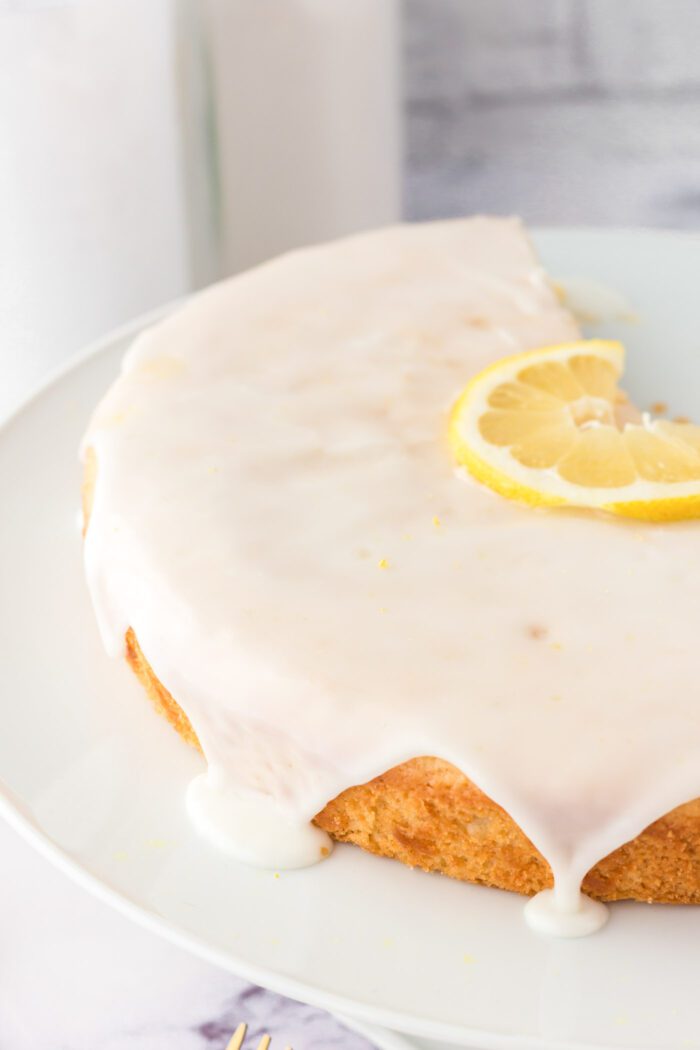
Variations & Additions
- Berry Olive Oil Cake: Add up to 1 cup of fresh berries to the batter before baking. I wouldn’t recommend using frozen berries as they’ll add too much moisture. Raspberries are a great choice!
- Orange Olive Oil Cake: The lemon juice and optional lemon zest in the glaze can be substituted with orange juice and orange zest. You can also add a bit of orange zest to the cake.
- If you don’t want to make the glaze, I’d suggest dusting your cake with sifted powdered sugar after it cools briefly.
- Another alternative to the glaze is making a blueberry or strawberry compote. To make one, heat 1 lb of strawberries or raspberries in a small pot with 3 T sugar and a squeeze of lemon. Cook for 10-15 minutes until thickened and juicy.
- If you’re not adding a topping, try serving your cake with whipped cream, fresh fruit or ice cream.
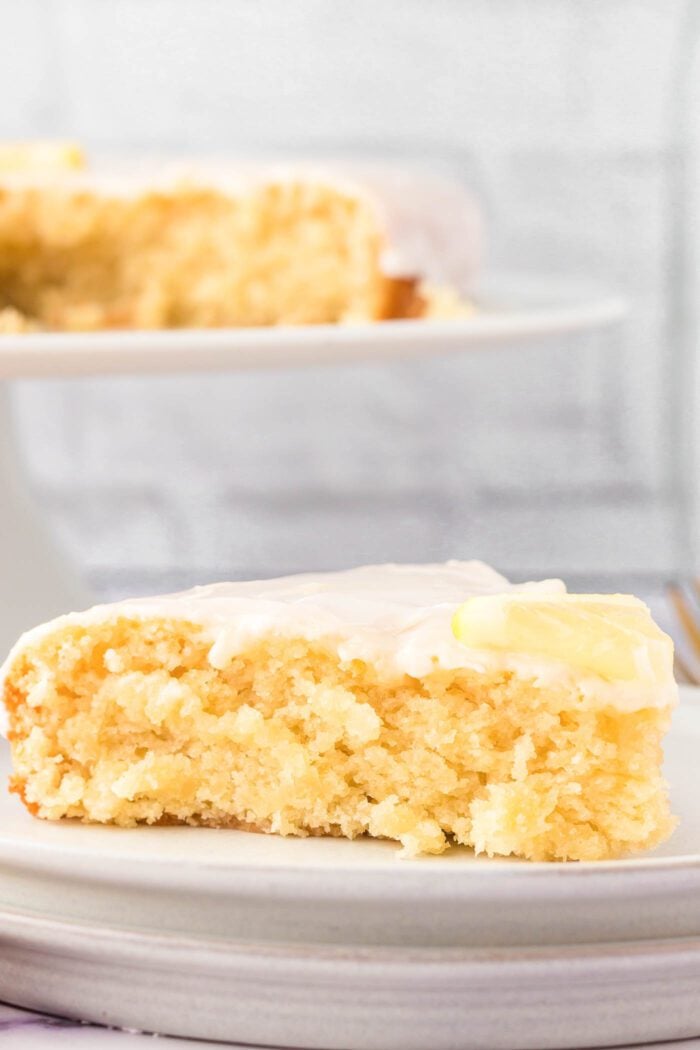
FAQs
A springform pan is recommended for easy removal but any 9-inch cake pan works. I think a bundt pan would also work for a pretty presentation! If you don’t have a round cake pan, a 8 or 9-inch square pan also works.
You can but olive oil really shines here and works well with the other flavours. This is, after all, an olive oil cake!
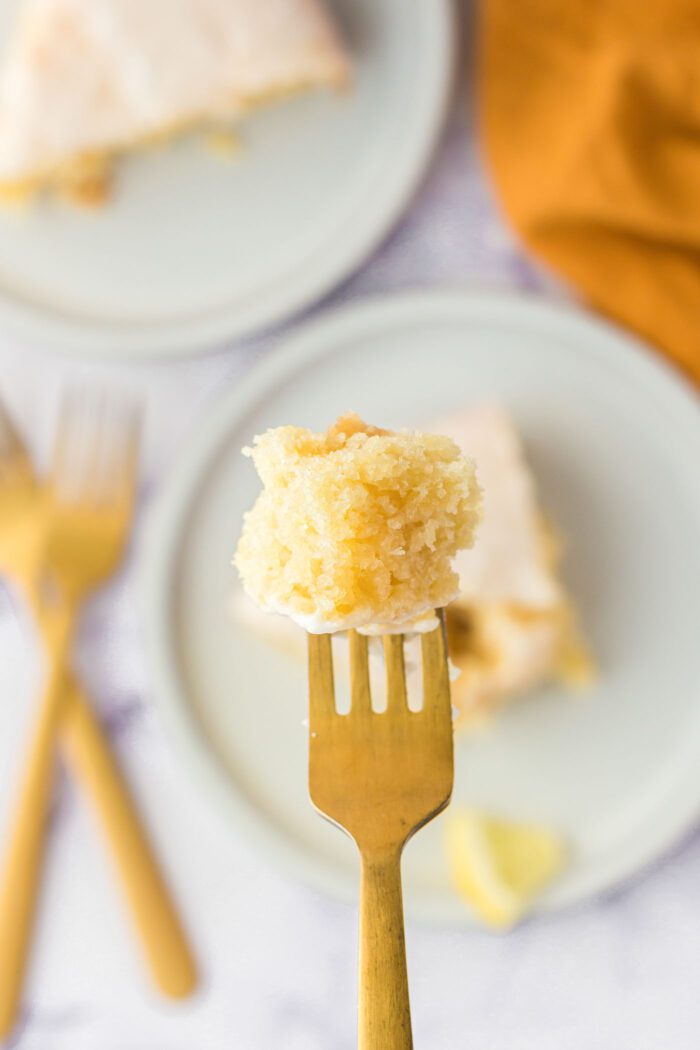
Storing
- Let the cake cool completely before storing.
- Store in an airtight container at room temperature for 3-4 days or in the fridge for up to 1 week.
- You can freeze the cake but it’s not recommended because the texture will change after thawing.
Did you try this recipe? I’d love to hear about it! Click here to leave a review.
Description
A light, moist and tender vegan olive oil cake that’s perfect for everyday and special occasions. Serve with the lemon glaze, a dusting of powdered sugar or plain topped with whipped cream and fresh raspberries.
For the Olive Oil Cake
- 2 cups all-purpose (white) flour (260 g)
- ½ cup unsweetened applesauce (118 g)
- ¾ cup white granulated sugar (150 g)
- ½ cup extra virgin olive oil (118 g)
- 1 tsp vanilla extract
- 2 tsp baking powder
- 1 tsp sea salt
For the Glaze (Optional)
- 1 ½ cups powdered sugar (287 g)
- ¼ cup lemon juice (59 g)
- Prepare: Preheat your oven to 350 degrees Fahrenheit. Grease or spray the bottom of a 9-inch can pan with non-stick cooking spray then line with parchment paper. You can also use a springform pan or if you don’t have a round pan, an 8 or 9-inch square pan.
- Cream Oil & Sugar: In a large mixing bowl, use a hand mixer to combine the sugar and olive oil until homogenous and fluffy. If you don’t have a hand-mixer, you can use a fork or metal whisk to vigorously mix to combine.
- Add Applesauce & Vanilla: Whisk in the applesauce and vanilla until the ingredients are fully incorporated into the sugar mixture.
- Add Dry Ingredients: Gently fold in the flour, salt, and baking powder until there are no dry clumps of flour remaining in the batter. Once the dry ingredients are incorporated, stop mixing the batter.
- Add Batter to Pan: Pour the mixture into the prepared cake pan and bake for 35 minutes, or until a toothpick can be cleanly removed from the center of the cake. Let the cake cool for 10 minutes in the pan then invert the cake into your hand or onto a wire cooling rack, and remove the parchment paper. When you’re ready, transfer the cake to a serving platter or stand.
- Prepare Glaze: Prepare the lemon glaze by whisking together the lemon juice and powdered sugar until smooth and runny.
- Ice Cake: Spoon the glaze over the cake, serve, and enjoy!
Notes
- You can store this cake in the fridge or on the counter in an airtight for up to one week. After that, it will become a bit too dry. I do not recommend storing this cake in the freezer as it will change the cake’s texture after it thaws in the fridge.
- For extra lemony flavour, you can add up to 1 tbsp of lemon zest. You can also add 1-2 tsp lemon zest or orange zest to the cake batter. If using zest, be sure to only use the outermost peel and avoid the bitter white pith.
- The lemon glaze is optional. As an alternative, dust the top of the cake with powdered sugar or serve plain with fresh berries or other fruit, whipped cream or ice cream.
- Nutrition facts include the glaze. Without the glaze, each slice of cake is 317 calories per slice with 14g F/45g C/3g P.
Nutrition
- Serving Size: 1 slice
- Calories: 406
- Sugar: 42 g
- Sodium: 295 mg
- Fat: 14 g
- Carbohydrates: 68 g
- Fiber: 1 g
- Protein: 3 g
Keywords: vegan olive oil cake


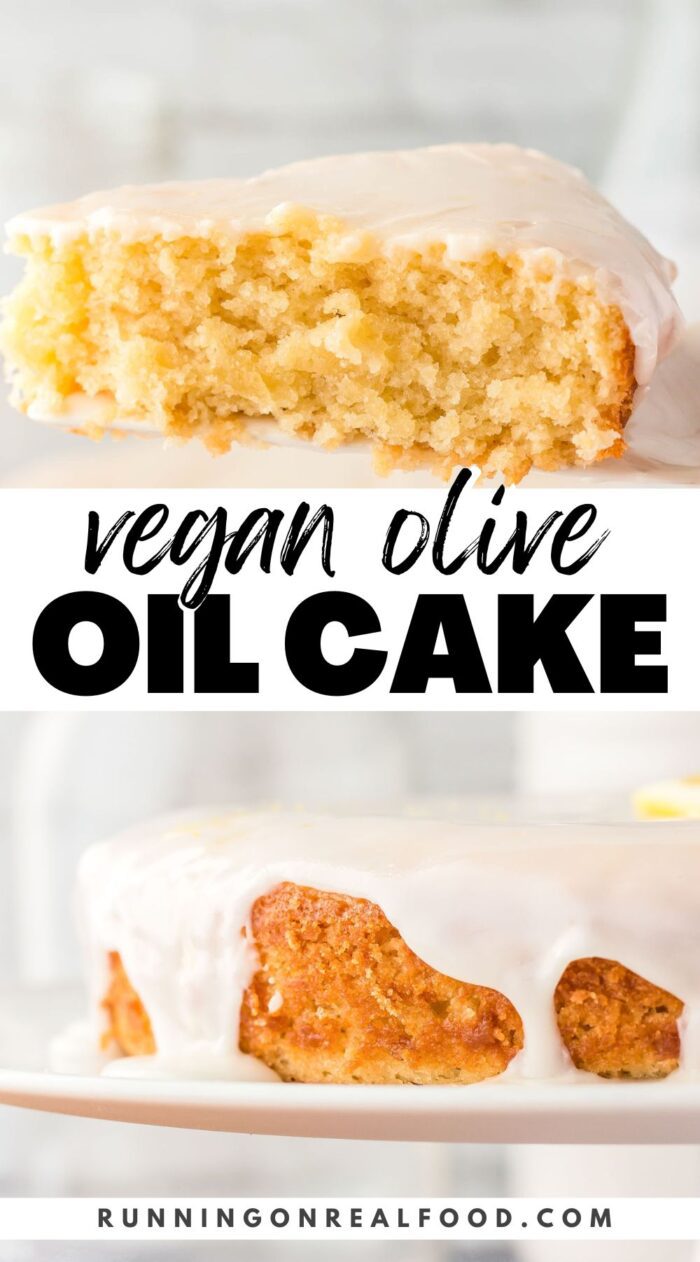
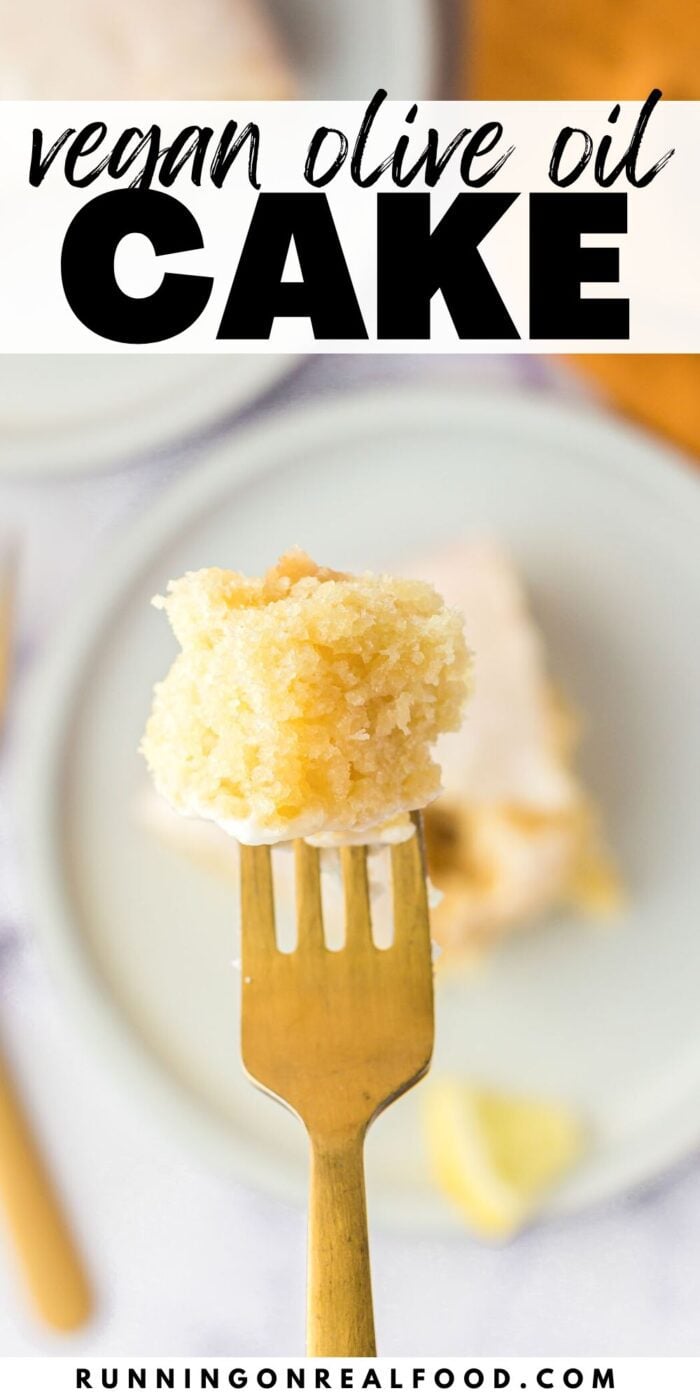
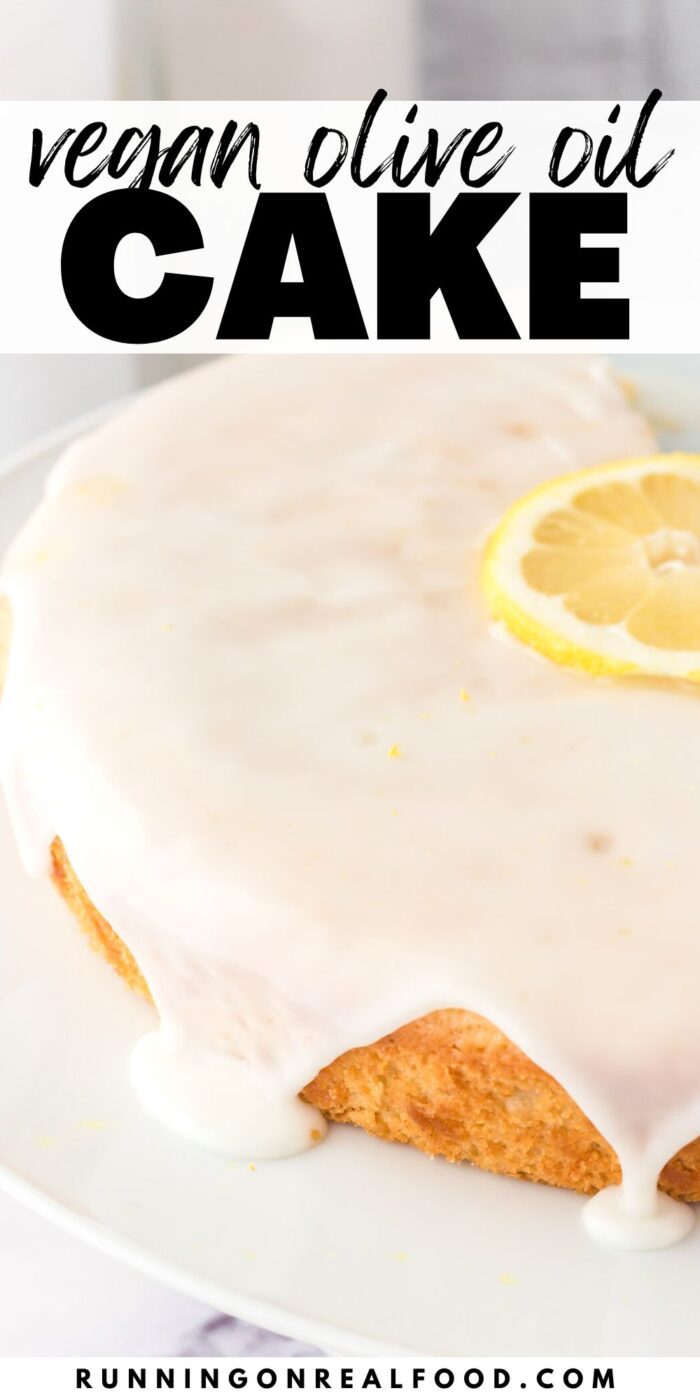
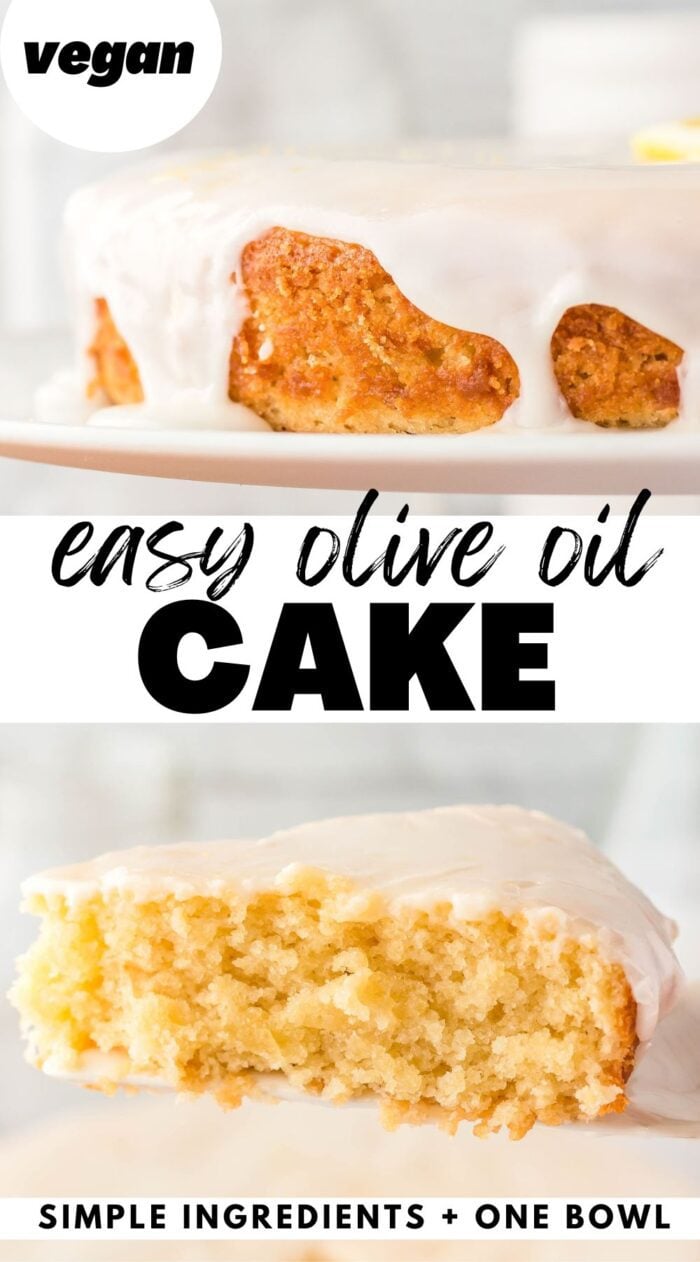




More Stories
How to Stop Raccoons From Drinking Your Pool Water
Assorted Indian Drinks
Boost Your Performance Without Energy Drinks